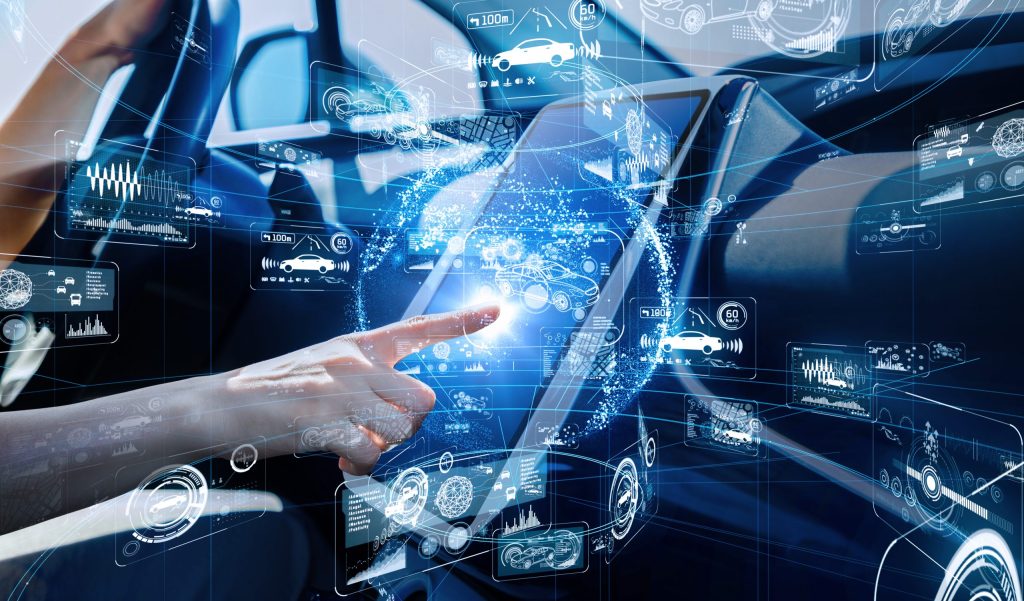The future of technology is evolving at an unprecedented pace, bringing innovations that are set to redefine how we live, work, and interact with the world around us. While many trends are emerging, three key advancements stand out as game-changers that will dominate the future: Artificial Intelligence (AI) and Automation, Quantum Computing, and 5G and Beyond. These technologies promise to unlock new possibilities, enhance efficiency, and solve complex global challenges.
Let’s explore how these technological advancements are shaping the future.

1. Artificial Intelligence and Automation
Artificial Intelligence (AI) is already transforming industries, but its impact will only grow stronger in the coming years. AI-powered automation is set to revolutionize the workforce, streamline business processes, and improve decision-making across sectors like healthcare, finance, manufacturing, and customer service.
Key Trends in AI and Automation:
- AI-Powered Healthcare: AI is already being used to diagnose diseases, analyze medical data, and personalize treatment plans. In the future, AI will become more advanced, enabling early detection of complex diseases like cancer and improving surgical precision with the help of robotics.
- Smart Cities and Autonomous Vehicles: AI will play a pivotal role in the development of smart cities, optimizing traffic management, reducing energy consumption, and improving public safety. Autonomous vehicles, powered by AI, will change the way we commute, reducing accidents and creating more efficient transportation systems.
- Workforce Transformation: Automation is expected to handle repetitive tasks, allowing human workers to focus on creative and high-value roles. AI-driven tools will assist employees in tasks such as data analysis, project management, and content creation, enhancing productivity across industries.
As AI continues to evolve, it will reshape economies and the way we approach problem-solving, making it one of the most influential technologies in the future.
2. Quantum Computing
Quantum computing is a revolutionary advancement that will change the way we process data. Unlike classical computers that use bits (0s and 1s), quantum computers use quantum bits or qubits, which can represent both 0 and 1 simultaneously. This allows quantum computers to solve complex problems exponentially faster than traditional systems.
Key Impacts of Quantum Computing:
- Breaking Cryptography: Quantum computers will be powerful enough to break many of the encryption techniques used today, potentially compromising the security of digital communications, financial systems, and sensitive data. However, this also opens the door for quantum-safe cryptography, ensuring future-proof security.
- Solving Complex Problems: Quantum computing can solve problems that are currently impossible for classical computers. This includes modeling molecular structures for drug discovery, optimizing supply chains, or simulating climate change impacts with greater accuracy.
- Advancements in AI: Quantum computing will enhance the capabilities of AI by processing vast datasets more efficiently. It could lead to breakthroughs in machine learning, allowing AI to become even more intelligent and responsive.
While quantum computing is still in its infancy, its potential to disrupt industries and solve large-scale challenges makes it a key technology to watch.
3. 5G and Beyond
The rollout of 5G technology is revolutionizing how we connect to the internet, enabling faster speeds, lower latency, and higher capacity. However, the true potential of 5G will become evident as it lays the foundation for more advanced technologies like the Internet of Things (IoT), augmented reality (AR), virtual reality (VR), and smart cities. The future will also bring the next generation of connectivity beyond 5G, further enhancing the digital ecosystem.
Future Applications of 5G and Beyond:
- Internet of Things (IoT): With 5G, billions of devices can connect seamlessly, allowing smart homes, cities, and industries to function efficiently. Smart sensors will monitor everything from traffic patterns to energy usage, optimizing resources and improving urban life.
- Augmented and Virtual Reality: The low latency and high-speed data transmission of 5G will make immersive AR and VR experiences more mainstream. Industries like gaming, education, and healthcare will benefit from these technologies, providing users with real-time, interactive environments.
- Autonomous Systems: From self-driving cars to industrial robots, 5G will be the backbone of autonomous systems, enabling machines to communicate in real time. This will revolutionize industries like logistics, manufacturing, and even healthcare, where remote surgery could become a reality.
As 5G continues to expand and pave the way for more advanced connectivity, we can expect new innovations that will further enhance the way we interact with technology.
Conclusion
The future of technology is being shaped by advancements that will transform industries and impact daily life on a global scale. Artificial Intelligence and Automation will enhance productivity and reshape workforces, Quantum Computing will unlock new possibilities for solving complex problems, and 5G and Beyond will enable smarter, more connected environments.
As these technologies continue to evolve, they will unlock new opportunities, making the future more innovative, efficient, and connected than ever before. Whether it’s improving healthcare, enhancing cybersecurity, or creating immersive experiences, these advancements will dominate the technological landscape for years to come.
